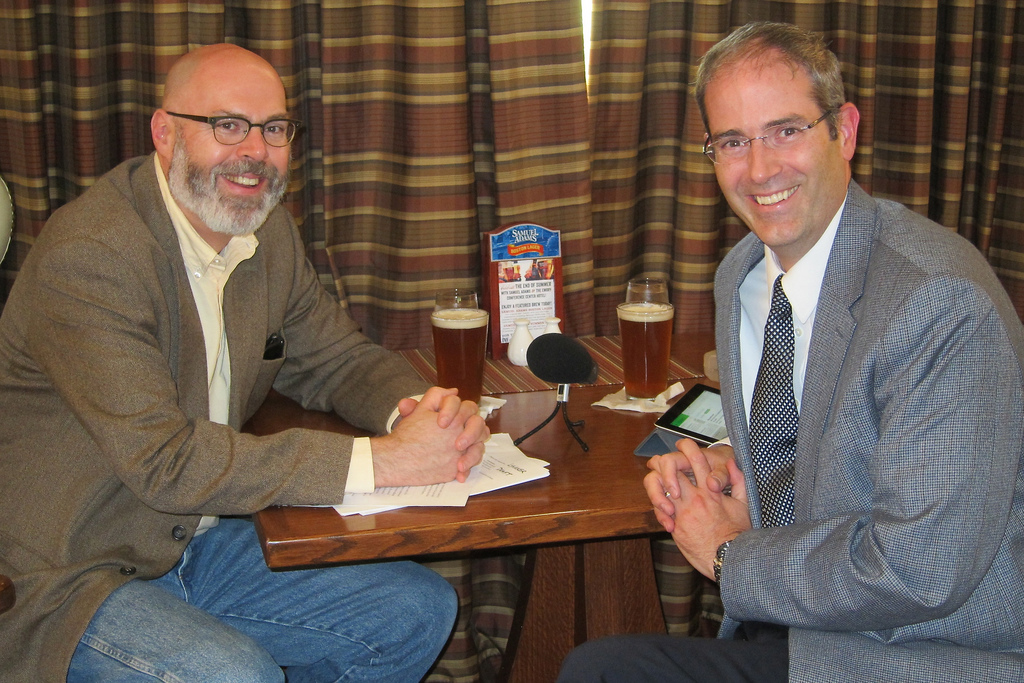
John Lysaker, Professor of Philosophy and Director of Graduate Studies at Emory University. John’s research focuses on philosophical psychology, aesthetics, social & political philosophy, and 19th & 20 century continental and American philosophy. He has numerous publications in these areas, including two monographs, his first, You Must Change Your Life: Poetry, Philosophy, and the Birth of Sense (American and European Philosophy), was published in 2002 by Penn State University Press, and his second, Emerson and Self-Culture (American Philosophy)
, was published in 2008 by Indiana University Press.
John has been a steady guest on the digital dialogue appearing in Episode 16 to discuss his book on Emerson and Self Culture, and then again on Episode 48 in a Flipped Dialogue in which he interviewed me about my Aristotle book, Aristotle on the Nature of Truth.
We recorded this episode, as you will hear, in the restaurant at the Emory Conference Center, so it has all the background noise that goes along with that as we discuss John’s book project on philosophical writing.


lots of good stuff to respond to here but to start with what are we to make of the fact that the majority people who teach “critical” thinking for a living are so often caught up in the kind of unreflective tyranny of the means that is outlined here?
Great question, Dirk. Part of the answer might have to do with the way succumbing to the tyranny of the means seems to be required if one intends to advance in the profession. Of course, this amplifies the extent to which there is a very real systematic problem at the heart of philosophy as a profession, as opposed to as an life activity.
sure for the minority that feels at odds with the binding norms of the academy, and for the rest there is no doubt a kind of self-selection/socialization factor at work here.
And yes the age old problem of how when one goes to institutionalize insights/prototypes they will become rigid/limiting/ruled, reminds me of Heidegger on thinking vs gossip, Deleuze on concept creation, Rorty on fashioning idiosyncratic “living” metaphors and overcoming anxieties of influence and blind-impresses, and Emerson’s divinity school address.
But to be more specific I wonder just how capable most folks are (given our cognitive-biases) of doing much more than being technicians as opposed to being innovators, of actually reflecting on and not just reflecting back, conforming to? I think there is a real gap of knowledge here as to how response-able people are or are not, maybe we can get some folks in the social sciences and human-development/education to start to flesh out some of these concerns?
Hi Christopher,
Were we can get more lectures of John Lysaker ?
Thank you!
What a great helpful resource here. It is necessary for an experienced resume writer with credentials from a leading trade association and a strong track record to achieve a higher learning level of success. A popular place for the http://writemyessay4me.blogspot.com/: http://writemyessay4me.blogspot.com/ and it is helping students and professionals alike.